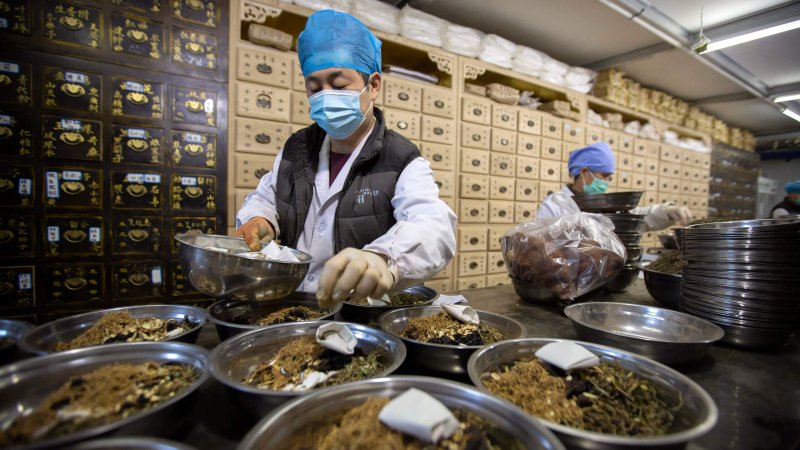The government in China’s far northwest Xinjiang region is resorting to draconian measures to combat the coronavirus, including physically locking residents in homes, imposing quarantines of more than 40 days and arresting those who do not comply. Furthermore, in what experts call a breach of medical ethics, some residents are being coerced into swallowing traditional Chinese medicine, according to government notices, social media posts and interviews with three people in quarantine in Xinjiang. There is a lack of rigorous clinical data showing traditional Chinese medicine works against the virus, and one of the herbal remedies used in Xinjiang, Qingfei Paidu, includes ingredients banned in Germany, Switzerland, the U.S. and other countries for high levels of toxins and carcinogens.
Of course, it must be conceded that Lianhua Qingwen is an herbal concoction. So it is possible that there are actual drugs in the mixture that might have activity against COVID-19. However, aside from some in vitro evidence, there’s no good evidence from randomized controlled clinical trials that this compound is effective. In this, I’m very much reminded of the antimalaria drug hydroxychloroquine, which in the “West” has been promoted as a miracle cure for COVID-19.
However, as irresponsible as the promotion of hydroxychloroquine, azithromycin, and other unproven treatments for COVID-19 has been, apparently the Chinese are taking the promotion of unproven treatments one step further and force their use.































